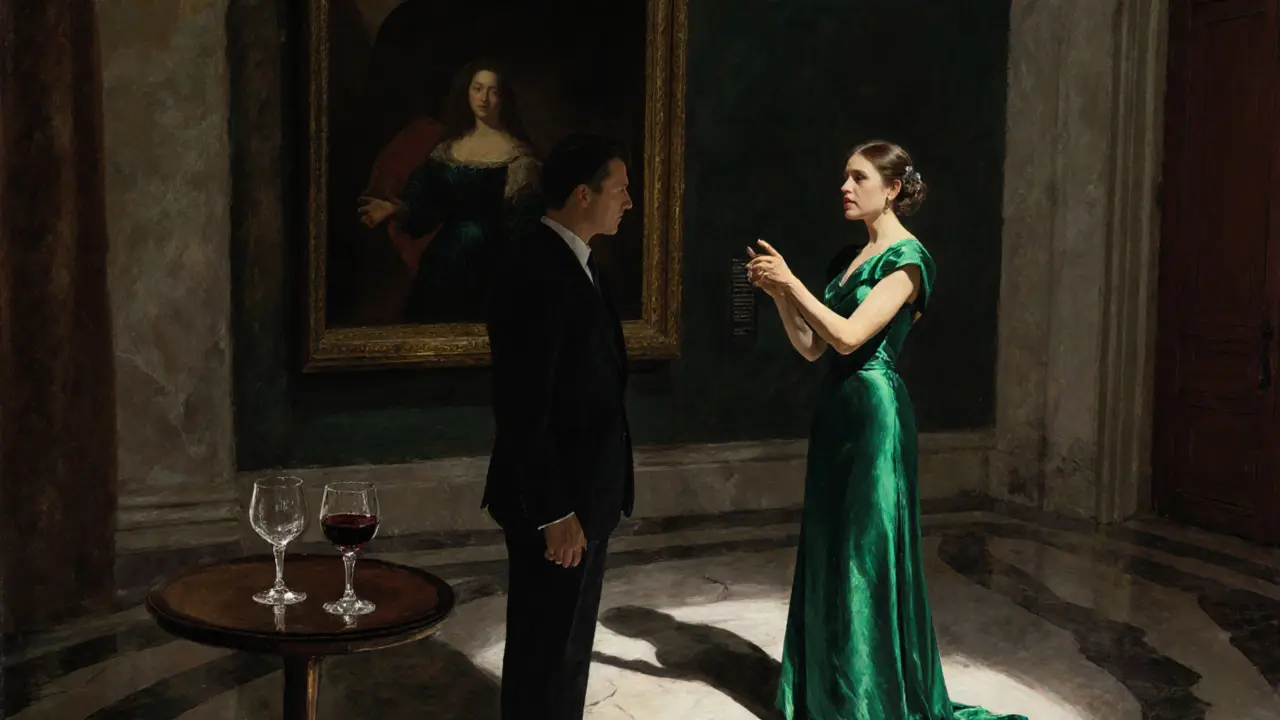For years, Milan has been known for fashion, design, and fine dining. But in the last three years, something quieter-and more exclusive-has been growing in the shadows: luxury escort services. Not the kind you see in bad movies or clickbait ads. These are professionals who offer companionship, cultural insight, and discretion to high-net-worth individuals, executives, and international visitors. They don’t just show up at dinners. They know which gallery openings are invite-only. They can get you into a private viewing at the Triennale. They speak fluent Italian, English, French, and sometimes Mandarin. And they’re not cheap.
What Makes a Luxury Escort Different
Let’s be clear: this isn’t about sex. At least, not primarily. The clients paying €800 to €1,500 per hour aren’t looking for a quick hook-up. They’re looking for someone who can navigate Milan’s elite social circles without drawing attention. A woman who knows the right waiter at Il Luogo di Aimo e Nadia to ask for the truffle pasta off-menu. A man who can discuss Renaissance architecture while sipping Aperol at Bracco’s rooftop bar. These are not random people off the street. Most have degrees in international relations, art history, or hospitality management. Many worked in five-star hotels or private concierge firms before transitioning.
One client, a Singaporean tech founder who visits Milan quarterly, told me in confidence: “I don’t need someone to sleep with. I need someone who won’t make me look like a tourist at a Milan Fashion Week afterparty.” That’s the real value proposition.
The Client Profile Has Changed
Fifteen years ago, luxury escorts in Milan mostly served older European businessmen. Today, the biggest growth comes from three groups: tech entrepreneurs from Asia and the U.S., Russian oligarchs relocating to Lombardy, and wealthy Middle Eastern families visiting for shopping sprees. These clients don’t want anonymity-they want access. And they’re willing to pay for it.
Unlike traditional escort agencies that operate out of apartments or call centers, the top-tier services now use encrypted apps, private booking portals, and vetting processes that rival luxury hotels. Background checks are standard. References from previous clients are required. Many agencies now offer “cultural orientation” sessions before the first meeting-teaching escorts about the client’s nationality, religion, and social expectations.
How the Industry Operates Now
There are no streetwalkers. No flyers on lampposts. No Instagram accounts. The best operators don’t advertise at all. They rely on word-of-mouth among private bankers, luxury real estate agents, and high-end travel planners. If you’re introduced to one of these services, it’s because someone you trust vouched for them.
Services typically include:
- Companionship at business dinners or cultural events
- Guided tours of private art collections or historic villas
- Translation and negotiation support during high-stakes meetings
- Discreet transportation in chauffeur-driven cars
- Access to exclusive events through personal networks
Some agencies even offer “experience packages”-a full day with a former opera singer who now works as a companion, or an evening with a retired diplomat who can explain the nuances of Italian politics over a bottle of Barolo.

The Legal Gray Zone
Italy doesn’t criminalize escorting itself-only pimping, trafficking, and soliciting in public. That’s why these services thrive in Milan. They operate under the legal guise of “companion services” or “social liaison.” Contracts are signed. Payments are made via bank transfer. No cash. No receipts. No visible interaction with the client outside of pre-arranged settings.
Police in Milan have investigated several agencies in the past two years, but charges rarely stick. The clients don’t report anything. The escorts are careful. And the agencies are meticulous. One agency owner, who spoke anonymously, said: “We’re not breaking the law. We’re just filling a gap that no five-star hotel can touch.”
Why Milan? Why Now?
Milan is the perfect storm. It’s wealthy enough to support this market. It’s cosmopolitan enough to attract global clients. And it’s discreet enough that nobody talks about it publicly. Unlike Paris or London, where escort services are more openly discussed, Milan’s elite culture values silence. You don’t talk about who you’re with. You don’t post photos. You don’t name names.
Post-pandemic, Milan’s luxury sector rebounded faster than any other Italian city. High-end retail sales hit €12 billion in 2024. The number of ultra-high-net-worth individuals living in Lombardy rose by 18% since 2022. More people with money. More people needing someone who understands how to move in these circles. That’s the demand.
Meanwhile, traditional tourism has flatlined. The city’s once-bustling nightclubs are quieter. The fashion crowds are smaller. But the demand for refined, private experiences? It’s growing.

Who Are the Escorts?
They’re not stereotypes. One escort I spoke with (under strict confidentiality) was a former university lecturer in medieval literature. Another is a certified sommelier who used to work at a Michelin-starred restaurant. A third is a former model who now studies psychotherapy part-time.
Most are women, but the demand for male companions is rising-especially among female clients. One agency reported a 40% increase in male escort bookings since 2023. These men are often former athletes, diplomats, or actors with polished manners and impeccable taste.
Age ranges from 25 to 45. Education levels are high. Many speak three or more languages. They don’t wear designer clothes to impress-they wear them because they know how to match them correctly. They don’t talk about themselves. They listen. They adapt. That’s why they’re paid so much.
The Ethical Question
Is this exploitation? Or is it simply another form of high-end service work? There’s no easy answer. Some escorts say they feel empowered. They control their schedules, their rates, and their boundaries. Others say the pressure is immense-the need to perform perfectly every time, the isolation, the fear of exposure.
There’s no union. No labor protections. No health insurance. The work is legal, but it’s not protected. And while the clients are wealthy, the escorts rarely become wealthy themselves. Most save for a future outside the industry-opening a boutique, writing a book, starting a consultancy.
What’s clear is this: the market isn’t going away. It’s evolving. And it’s becoming more professionalized than ever.
What This Means for Milan
Milan is changing. The city’s identity is shifting from pure fashion capital to a hub of discreet, high-value experiences. This trend reflects a broader global pattern: the commodification of access, connection, and social fluency. In cities like Tokyo, Dubai, and now Milan, money buys more than goods-it buys belonging.
For visitors, it means you can have a Milan experience that no guidebook offers. For locals, it means new economic opportunities-but also new risks. For the city, it means a quiet, unspoken layer of influence that few acknowledge but many benefit from.
Milan doesn’t need to legalize this. It doesn’t need to regulate it. It just needs to let it exist-quietly, elegantly, and without judgment. Because in the end, this isn’t about sex. It’s about connection. And in a city where image matters more than truth, that’s the most valuable commodity of all.
